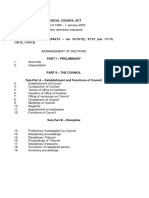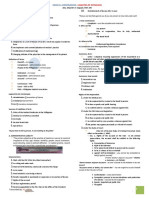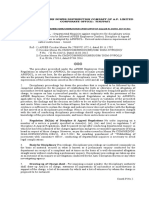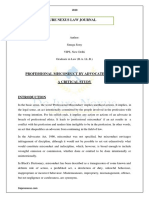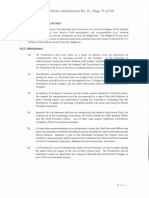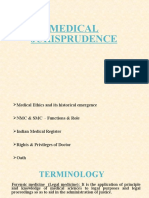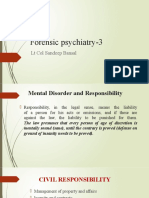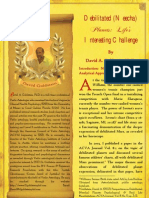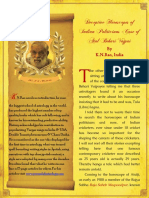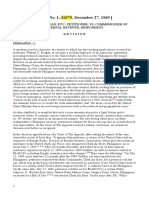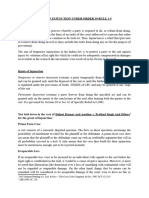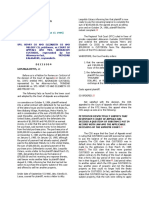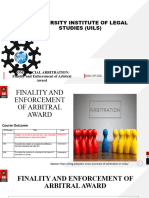0% found this document useful (0 votes)
158 views2 pagesDisciplinary Control: (I) Disciplinary Enquiry - Disciplinary Enquiry May Arise Usually From Two Sources
Disciplinary control is one of the disciplinary functions of state medical councils aimed at protecting the public, not punishing doctors. It allows councils to erase a doctor's registration for criminal convictions or professional misconduct. The disciplinary process begins with a complaint that is investigated by a subcommittee. If a prima facie case is found, the doctor is notified and a hearing is held where both sides can present evidence. If misconduct is confirmed by majority vote, penalties like warnings, suspensions or erasure can be issued depending on the offense's severity. Erasure requires informing other councils and appeals can be made to the central government and MCI, whose decision is final.
Uploaded by
Sandeep BansalCopyright
© © All Rights Reserved
We take content rights seriously. If you suspect this is your content, claim it here.
Available Formats
Download as DOCX, PDF, TXT or read online on Scribd
0% found this document useful (0 votes)
158 views2 pagesDisciplinary Control: (I) Disciplinary Enquiry - Disciplinary Enquiry May Arise Usually From Two Sources
Disciplinary control is one of the disciplinary functions of state medical councils aimed at protecting the public, not punishing doctors. It allows councils to erase a doctor's registration for criminal convictions or professional misconduct. The disciplinary process begins with a complaint that is investigated by a subcommittee. If a prima facie case is found, the doctor is notified and a hearing is held where both sides can present evidence. If misconduct is confirmed by majority vote, penalties like warnings, suspensions or erasure can be issued depending on the offense's severity. Erasure requires informing other councils and appeals can be made to the central government and MCI, whose decision is final.
Uploaded by
Sandeep BansalCopyright
© © All Rights Reserved
We take content rights seriously. If you suspect this is your content, claim it here.
Available Formats
Download as DOCX, PDF, TXT or read online on Scribd
/ 2





